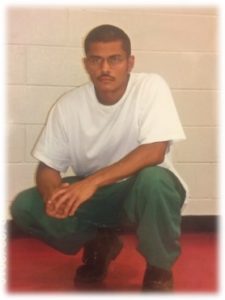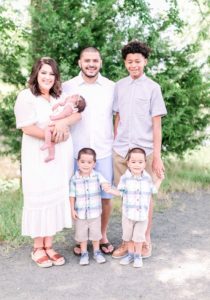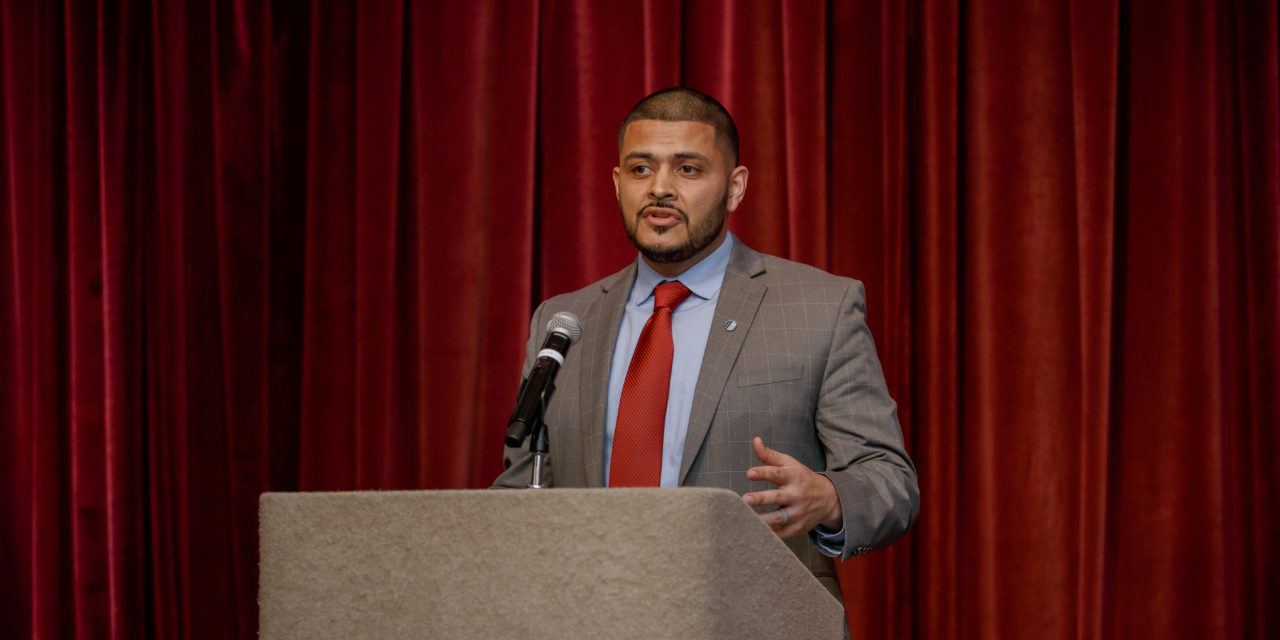Sammy Perez knows about second chances. In 2005, he was sentenced to prison for ten years in Virginia, serving his time in both youth and adult facilities.
Perez grew up without knowing his father – only seeing him twice before his dad was murdered. His mom struggled with mental illness. Taken away from her at age two, he was shunted around between family members.
At age eleven, his mother knew she could not offer the care he needed and gave him up to social services, where he became a ward of the state. Perez still has a relationship with her, but she still struggles with mental health issues.
All this led to “an introduction to the streets at an early age,’ he told The Daily Citizen.

But imprisonment also led to his redemption. While Perez was out in the prison yard, his cellmate stayed inside, reading his Bible. He also shared the gospel with Perez, who gave his life to the Lord.
Talk about second chances: He’s been out for eleven years now and is married with four children. He also has a bachelor’s degree in psychology from Liberty University, specializing in addiction and recovery, as well as a master’s degree in professional counseling.
Perez wanted to be a good father to them but had no real role model in is life. He is grateful for the men who came alongside, mentoring him and helping him be a better husband and father.

After finding faith in prison, he was grateful for his relationship with Christ and wanted to give back to those who were incarcerated like he was. So he volunteered with Prison Fellowship’s Second Chances ministry as a Justice Ambassador.
That volunteer work led to employment with Prison Fellowship for four years. He leads a grassroots program to build and mobilize a network of Christians who are passionate about justice that restores.
Perez manages a team to equip Justice Advocates and Justice Ambassadors in the U.S. to raise awareness and improve the criminal justice system through digital advocacy, constituent lobbying, media engagement and storytelling.
Prison Fellowship was started by Chuck Colson in 1976, after Colson served seven months in prison for a Watergate-related offense. Most Christians know about Prison Fellowship’s work inside prisons, like their Prison Fellowship Academy. Most also know of their ministry to families of those in prison, like Angel Tree Christmas, camping and sports clinics.
But the ministry also works on behalf of justice reform and for prisoners after they are released.
Perez told us that there are more than 44,000 legal barriers to education, housing, employment and other opportunities for former prisoners. While he said some of these are necessary for public safety, some are not. They restrict access to opportunities completely unrelated to the crime that was committed.
Second Chances works as an advocacy organization to remove those unnecessary barriers to former prisoners as they re-enter society. The ministry’s advocacy team is working at the federal level and in six states – Michigan, Oklahoma, Pennsylvania, Tennessee, Texas and Virginia.
At the federal level, former President Donald Trump signed into law the First Step Act in 2018, legislation the organization advocated for. Among other reforms, it created improved access for “faith-based and nonprofit organizations to provide desperately needed programming in federal prisons,” the ministry stated.
Second Chances also works with more than 700 churches, businesses, service providers and organizations to offer help to former prisoners with education, job training, community connections, church support and more.
The ministry has more than 240 Justice Ambassadors, in 37 states and the District of Columbia, who share their stories, host community and church meetings, and meet with lawmakers.
Perez told us that prison work is important, but one of the biggest issues for prisoners is the stigma they face after they are released. “Second Chances offers hope to those living with a criminal record,” he said, “It lets them know people care, people see value in you.”
He also emphasized that while society – including Christians – sometimes views former prisoners as “those people,” Scripture has a different perspective: We all come to faith the same way, as sinners saved by grace.
He quoted from Isaiah 1, where God calls his people to “learn to do good; seek justice; correct oppression.” Sometimes the oppressed are those who have paid their penalty but need help overcoming the barriers placed before them.
Perez also quoted Hebrews 13, where believers are told, “Remember those who are in prison, as though in prison with them, and those who are mistreated, since you also are in the body.”
For Prison Fellowship, April is “Second Chance Month,” first launched in 2017, where the ministry spearheads a nationwide effort to raise awareness about the one in three American adults who have some sort of criminal record, limiting access to education, jobs, housing and opportunities.
The ministry invites individuals, churches, business owners and support organizations to contact them and get involved.
Related articles and resources:
- Second Chances
- Second Chance Stories
- Justice Ambassadors
- Sammy Perez – Civic rights for former prisoners
- Volunteer with Prison Fellowship
Sammy Perez tells his story on Fox News
- Chuck Colson – Putting Your Faith into Action, part one and part two
- Resources – Prison Ministry






